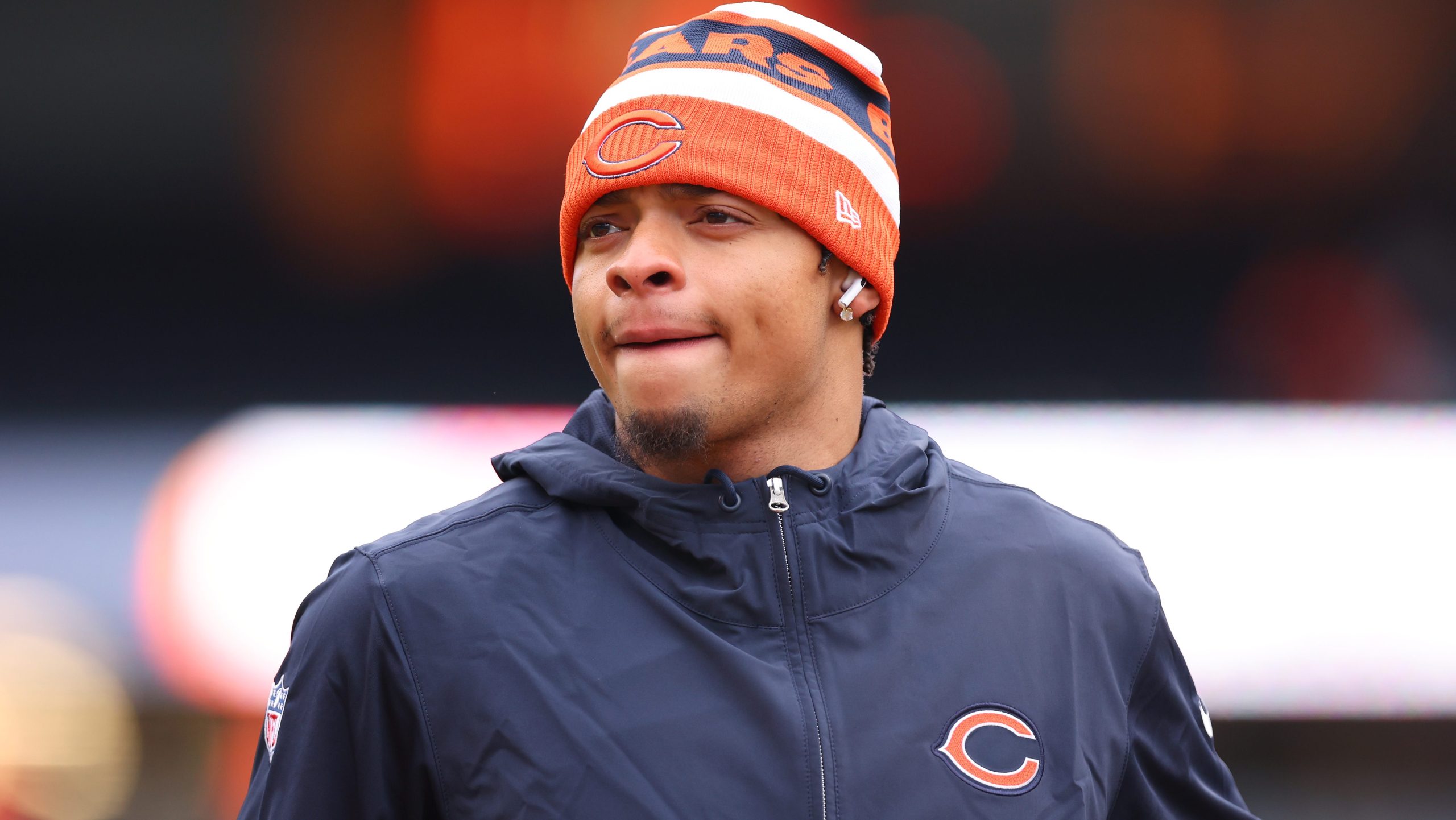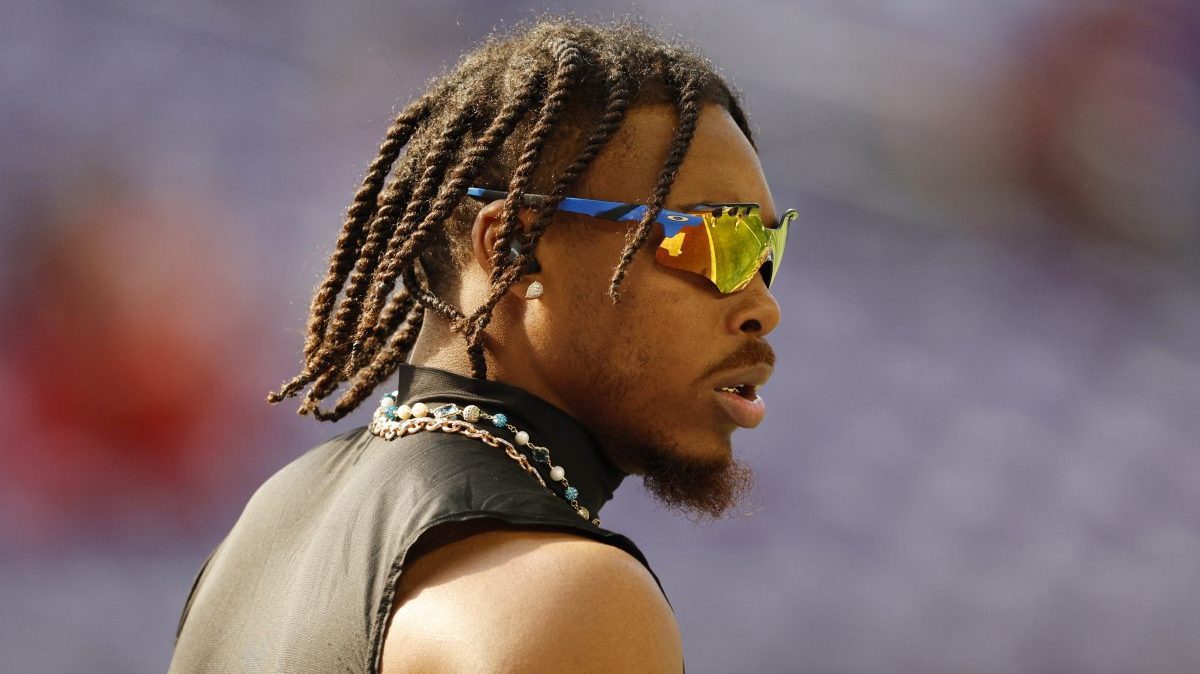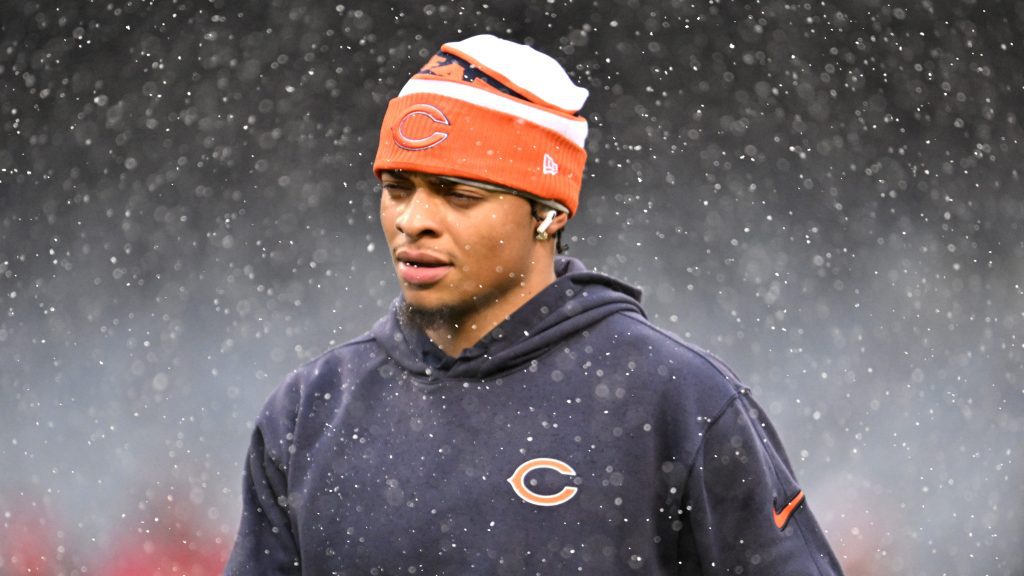The NFC North Division rivalry involving the Chicago Bears and Minnesota Vikings could have been more interesting if the Justin Fields trade situation unfolded differently. Chicago Bears and Minnesota Vikings could have added an extra level of intrigue if the Justin Fields trade saga had played out a little differently.
Chicago was ready to trade Fields for months after securing the No. 1 overall pick in a top quarterback draft class. But Fields wanted to prioritize his commitment to Ryan Poles doing right by Fields. This meant trading him as quickly as possible to one of his preferred destinations.According to
Brooke Pryor of ESPN , Fields gave Poles a list of four teams. One was the Pittsburgh Steelers, where the QB ultimately landed. Another was the Vikings.“The Steelers were one of four teams on Fields’ radar prior to the start of free agency, along with the Vikings,
, a source familiar with Fields’ thinking said,” Pryor wrote on Friday, March 29. Raiders and FalconsThe Vikings plan to invest more in a rookie quarterback than they would have spent on Justin Fields.
Quarterback Justin Fields, formerly of the Chicago Bears.

GettyIt is unclear if the Vikings ever engaged in talks with the Bears about a potential deal for Fields, though it is hard to believe that general manager
Kwesi Adofo-Mensah and head coach Kevin O’Connell were not at least aware of Fields’ interest in Minnesota as one of his top-four destinations. Acquiring Fields would have been complicated for the Vikings, but the upfront cost would have likely been lower than what they are expected to spend on a quarterback in the upcoming NFL draft.
To acquire Fields, Minnesota would have probably needed to outbid the Steelers. However, they could have done so by offering Chicago just a fifth-round pick with certain conditions that would elevate it to a fourth-rounder. In contrast, Pittsburgh gave the Bears a sixth-round pick in 2025, which would become a fourth-rounder if Fields plays 51% of the team’s offensive snaps next season.
Instead, earlier this month, Minnesota traded two second-round picks and a sixth to the
Houston Texans to acquire the No. 23 overall pick. Most analysts anticipate that the Vikings made this move because they plan to combine that selection with their No. 11 pick in an attempt to move up into the top five and draft a prospect like Drake Maye or J.J. McCarthy..
By declining to trade with the Bears for Justin Fields, the Vikings run the risk of upsetting Justin Jefferson, the wide receiver for the Minnesota Vikings.
Wide receiver Justin Jefferson of the Minnesota Vikings.

GettyIt's still uncertain how Minnesota’s quarterback plans will impact the NFC North Division hierarchy. As of now,
is the starter for Minnesota. Sam Darnold This situation does not look promising for the Vikings as they have to compete with the Chicago Bears, who have already made significant moves this offseason and are set to pick
Caleb Williams first overall before selecting another top prospect with the 9th pick. The Detroit Lions Green Bay Packers and also have good teams, and both made it to the playoffs last year and won three games in the postseason together. The way Minnesota plays at quarterback is also risky because it will affect the future of the All-Pro wide receiver.
Justin Jefferson Jefferson can get a new contract, which could set a new record and become the biggest wide receiver contract in NFL history.In 2021, Jefferson urged the Vikings to pick Fields, calling the then-Ohio State QB “dominant” during an episode of “The Herd” with Colin Cowherd.
“We need to plan for after Kirk,”
Jefferson said . “Having Justin Fields puts more pressure on other teams because he is a dominant quarterback.”If Minnesota gets a dominant quarterback in the upcoming draft, then choosing Fields would be the right decision and Jefferson would likely re-sign happily. But if the Vikings miss, they may regret not picking Fields—especially if it leads to Jefferson leaving and a new leadership change, which Minnesota experienced just two years ago.
Justin Fields may have stayed with the Chicago Bears if the team had agreed to trade him to one of its main rivals.



